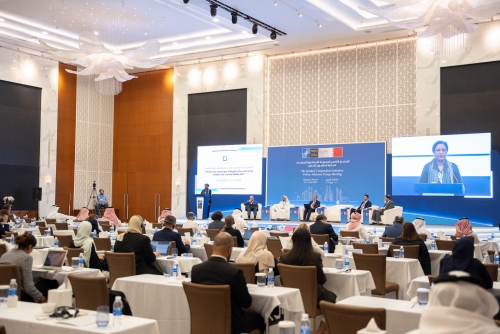Derasat hosts seminar on NATO-GCC cooperation, security threats
TDT | Manama
The Daily Tribune – www.newsofbahrain.com
A seminar organised by the Bahrain Centre for Strategic, International and Energy Studies (Derasat) mulled the future of NATO-GCC partnership, common security threats and priorities.
The seminar, titled ‘A Dialogue between Arabian Gulf Think Tanks and their Partners with NATO’, concluded yesterday at the Gulf Hotel in Bahrain.
The event also coincides with Bahrain’s hosting of the Istanbul Cooperation Initiative (ICI) Policy Advisory Group Meeting.
Dr Hamad Ebrahim Al-Abdulla, the Executive Director of Derasat, highlighted the successful partnership between Bahrain and the NATO alliance during his opening speech.
He said the partnership has yielded significant results in various areas of cooperation, including politics, diplomacy, defence, security, counter-terrorism, and crisis prevention.
“All nations today face security challenges that demand constant cooperation and strategic partnerships to offset, using practical policies that fulfill the aspired benefits to achieving security in the Arabian Gulf and the wider Middle East.”
Javier Colomina, the Deputy Assistant Secretary General for Political Affairs and Security Policy at NATO, stated that the mutual security threats faced by both NATO and GCC demand further discussions and exchange of perspectives to define their priorities and roles.
Colomina added that this will help to explore future methods of cooperation between NATO and GCC. Speakers included Dr Mohammed Abdulla Al-Ali, Founder and CEO of Trends Research & Advisory in the UAE; Alessandro Politi, Director of the NATO Defence College Foundation in Rome; Dr Haila Hamad Al-Mukaimi, Professor of Political Science at Kuwait University; and Dr Ashraf Mohammed Keshk, Director of the Strategic and International Studies Program at Derasat Center’s Directorate of Studies and Research.
Related Posts

